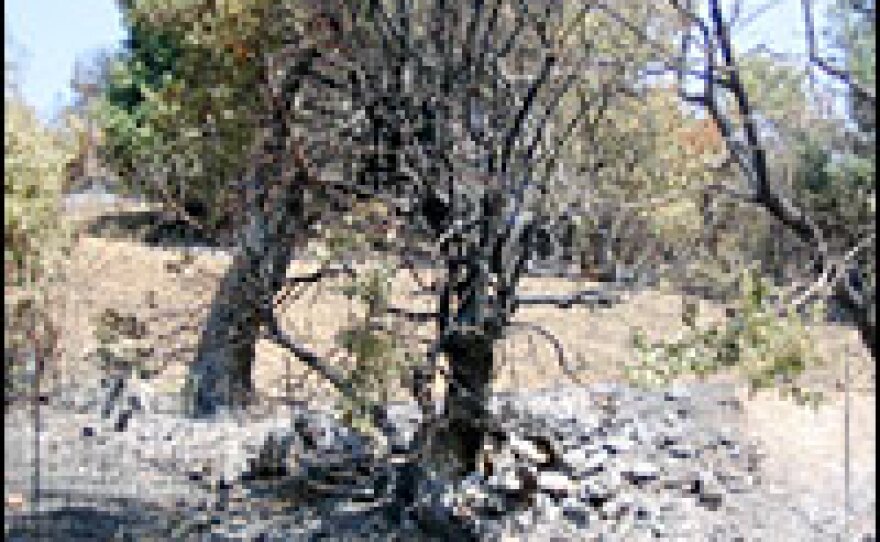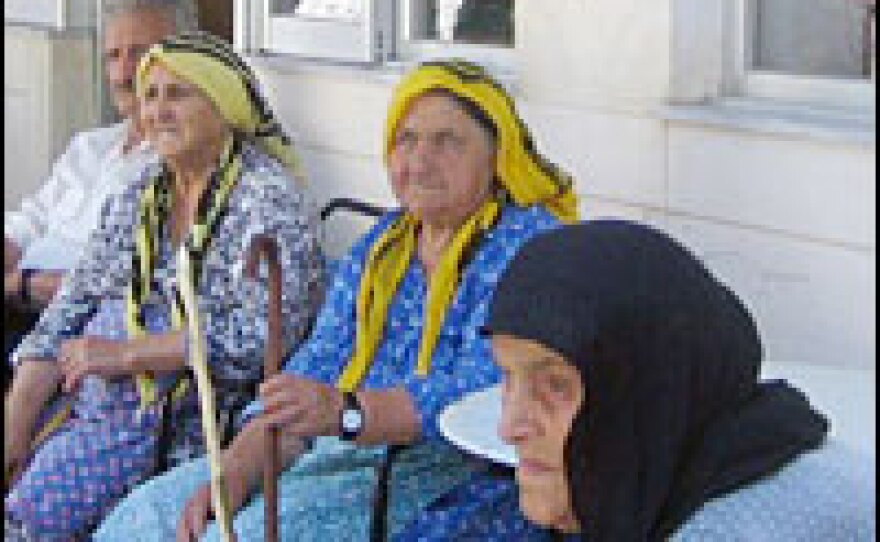
Greece's devastating summer wildfires have produced an environmental disaster.
The fires killed more than 60 people and hundreds of thousands of livestock, and destroyed more than a half-million acres of old-growth forest and scrubland.
Environmentalists say this is Europe's wake-up call to the impact of climate change: If drastic measures are not taken soon, they warn, the fires are just an early sign of more disasters to come.
Heat Waves' Effects Unprecedented
The devastation of the blazes that raged this summer is clearly visible on Evia, an island of lush, verdant mountains just north of Athens that is popular not only in summer, but also for skiing in the winter.
Lush, that is, until the fires.
The mountain slopes around the village of Makrihori are now a moonscape of black and gray with splotches of white ash. The air is silent.
Yorgos Dimou and his family's main source of livelihood is the crops they grow on their plot of land in the hills above Makrihori.
"I never expected the fires to get this bad," Dimou says as he assesses the damage to his peach, apple and pear trees.
"We've had fires in the past here before, and we've seen heat waves consistently ruin our crops, but we never expected fires to burn everything and to burn our village. That's never happened before," he says.
Dimou's land is 2,000 feet above sea level, but like the rest of Greece, the area suffered four heat waves this summer, with noon temperatures soaring to more than 106 degrees, even at this altitude.
Farmers there have lost their homes, crops and flocks of sheep and chickens to the fires.
And their concerns extend to the damaging effects of droughts, rising summer temperatures and decreasing winter precipitation.
Fires Are Sign of More Trouble to Come
The extent of the fires' destruction stunned even environmentalists, who had long warned about the impact of climate change and desertification in southern Europe.
Now, they are raising questions about how to deal with changing microclimate conditions.
Nikos Haralambidis, director of the Greece chapter of Greenpeace, says the immediate priority is for policymakers to sit down with experts and residents of the devastated areas to plan the future: what crops and trees to replant, what type of development is needed to reduce the impact of climate change, and what needs to be done to prevent further erosion.
"It's not an easy answer," Haralambidis says.
The fires have already created tens of thousands of "environmental refugees," he says.
And that, Haralambidis says, poses a major social challenge: to make sure these people have a "sustainable and decent living" and to prevent the creation of a huge group of "internal refugees that flee to the big cities" and seek support of the state, industry or the European Union.
Copyright 2022 NPR. To see more, visit https://www.npr.org. 9(MDAzMjM2NDYzMDEyMzc1Njk5NjAxNzY3OQ001))







